Four essential features of a good independent advocate
Many readers, as the parent or sibling of a child or adult with an intellectual disability or complex needs, have been advocating for a loved one their whole life. I applaud you, as I know how challenging and draining the role of family advocate can be, particularly when combined with a caring role.
In spite of your grit and hard-gained expertise at ‘battling the system’ for your loved one, your family may need advocacy support to navigate complex issues. For example, to make a discrimination complaint against a school or to appeal a National Disability Insurance Scheme (NDIS) plan decision to the Administrative Appeals Tribunal.
At such times, you may consider engaging an ‘independent advocate’ to act on behalf of your family member. To help you engage the right person, here are the four essential features of an independent advocate.
1. Independent and free from conflicts of interest
The advocate must be independent of a person, organisation or agency who provides supports, services or funding to the person they are advocating for. That is, they must not have interests that actually or potentially conflict, or be affected by, the outcomes of the advocacy.
Independence and freedom from conflicts of interest are critical because they ensure that the advocate can act solely in the best interests of the person they are advocating for.
For example, a support worker helping a person with disability to resolve a complaint about a disability service who is also their employer is not independent. Their employment obligations, interests and loyalties are likely to influence, or even compromise, how they support the person with disability to resolve their complaint.
Another example is a NDIS participant’s support coordinator representing the participant at a NDIS planning meeting or at any stage of a NDIS plan decision appeal (or review process). As the NDIS funds support coordination as part of the plan funding arrangements, the support coordinator is not independent of the NDIS. Their own funding dependency on the NDIS may influence how they support the participant in their planning meeting or during their NDIS appeal.
2. Support the exercise of choice and control
The advocate must ascertain, as best they can, the person’s wishes, preferences and directions. If the person is a child or adult with an intellectual disability, this process may involve discussion with close family members. The advocate must only make representations and take actions that are consistent with and promote the person’s wishes, preferences and directions.
The advocate must assist and empower the person to make their own choices about matters which affect them and ensure that their voice is heard by relevant parties.
It is not the advocate’s role to make decisions or representations for the person with disability based on what the advocate thinks is best for the person with disability. Their role is to ‘stand beside’ not ‘stand in for’ the person with disability.
3. Communication skills
Following point 2, it goes without saying (but I will say it anyway!) that the advocate must have excellent communication skills and an understanding of, and experience in, disability.
The advocate must develop a good rapport and relationship with the person that they are representing. It is critical that the latter feels comfortable with, and totally supported by, their advocate.
4. Expertise of disability laws and systems
The NDIS and other disability and social support systems comprise a complex set of ever-changing laws, policies and bureaucratic machinery.
The advocate must have a thorough knowledge of the subject area relevant to the particular issue or matter of the person they are advocating for (for example, the NDIS, or disability discrimination, or criminal law). This is so that the advocate can accurately advise the person, not only on their legal rights, remedies and options, but also on any legal obligations and responsibilities they may have.
The advocate must also be skilled and experienced in relevant operational, administrative and dispute resolution (e.g. conciliation, mediation) processes so they can support the person to resolve their issue as efficiently as possible.
For resolution and advice on legal issues, and for court representation, you will need to engage an independent advocate who is a lawyer with a current legal practising certificate issued by their state/territory legal services profession regulatory board.
Finding the right independent advocate
Now I hear you ask, how do I find a good independent advocate, that is, one who has all of the above four essential features?
The law society in your state or territory can provide you with referrals to suitable lawyers. Legal Aid (in each state and territory) and your local community legal centre may be able to provide legal services at no charge (pro bono).
For non-legal matters, such as an application for access to the NDIS, you do not necessarily need a legally qualified independent advocate. However, you will need an independent advocate with relevant skills and experience, as discussed earlier.
To find such a person, you can go to the online DSS advocacy finder. This useful tool will enable you quickly locate a government-funded advocacy organisation in your state or territory that provide independent advocacy services. These organisations do not charge for their services, but as they have finite resources, they typically have waitlists and eligibility criteria. Several of these organisations have been specifically funded to provide advocacy for appeals against NDIS decisions.
Alternatively, please contact Special Voices to find out more about our extensive range of legal and non-legal independent advocacy services.
References and further information
- Section 9, NDIS Act 2013 (Cth) (NDIS Act), No 20 of 2013. Note, the National Disability Insurance Scheme (Quality and Safeguards Commission and Other Measures) Act 2017 (Cth), No. 131 of 2017, assented to on 13 December 2017, inserted a new definition of ‘independent advocate’ into section 9 of the NDIS Act. See NDIS Act.
- Disability Advocacy Fact Sheet published by the Commonwealth Department of Social Security (DSS)
3. DANA Disability Advocacy Network Australia website





